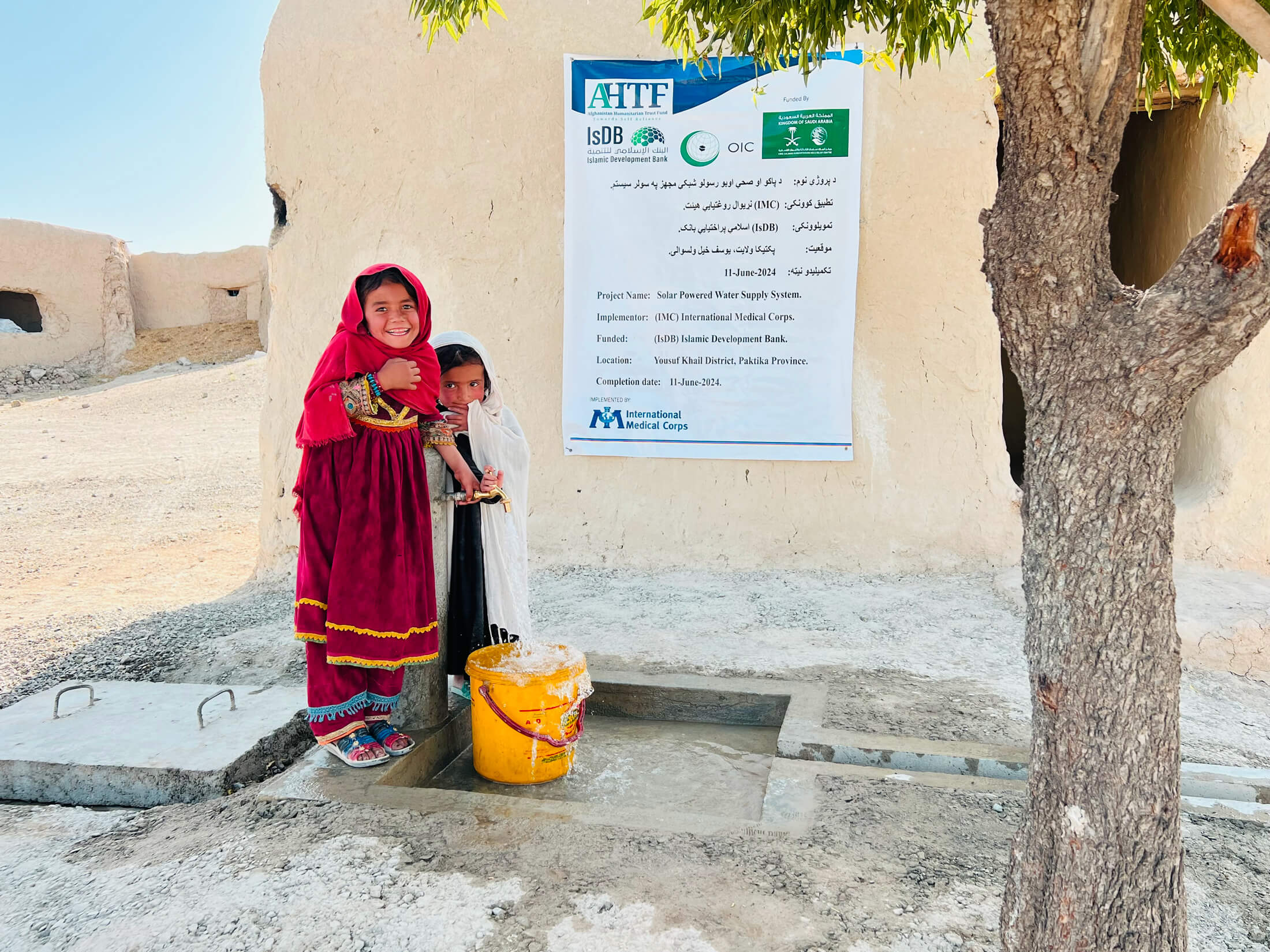In Paktika province, located in southeastern Afghanistan on the border with Pakistan, thousands of families struggle daily for one of life’s necessities: clean water. In the rural districts of Urgon and Yousuf Khail, residents relied on distant sources—which are often contaminated with bacteria, sewage and other pollutants, leaving people vulnerable to waterborne diseases. Without proper sanitation facilities or hygiene awareness, these communities lived under the constant threat of illness, their hardships amplified by years of conflict and natural disasters.
Recognizing the urgent need for intervention, International Medical Corps completed a transformative water, sanitation and hygiene (WASH) project last year that now provides more than 14,000 people in Urgon and Yousuf Khail with sustainable clean water and hygiene services.

“Before this water supply system was built, women, children and elders had to travel on donkeys to distant mountains to collect water from streams,” explains Saber Afghan, a resident of Amberwan village in Urgon district. “Children even had to miss their studies to fetch water. Now, we are very happy and grateful to the donors and International Medical Corps for providing us with this essential resource.”
“Children used to walk several kilometers to fetch water, and women had to go door-to-door asking neighbors for it,” adds Amir Rahmat, a resident of Gul Sha Khail village in Urgon district. “The water supply system built by International Medical Corps now provides clean water to every house. We are grateful to International Medical Corps for their support and the donors who made this water supply system possible.”

International Medical Corps created seven water supply systems across Urgon and Yousuf Khail districts. Each solar-powered system includes boreholes, water reservoirs, transmission and distribution lines, standing taps and boundary walls. The seven new systems benefit more than 2,000 families.
In addition, International Medical Corps conducted sanitation and hygiene training sessions, with women accounting for about half of the participants. These sessions covered essential topics, including household water-quality maintenance, proper handwashing techniques, personal and environmental hygiene, and proper food handling. To reinforce these lessons, communities were provided with information, education and communication materials, helping to ensure that proper water usage and hygiene habits became a daily practice.

The need for such efforts had never been more pressing. The 2025 Afghanistan Humanitarian Needs and Response Plan reported a staggering increase in demand for WASH services, with 21 million people in need (approximately 23% of households across the country rely on unsafe water sources). This alarming rate underscores the urgent need for both immediate and long-term solutions to protect the health and dignity of Afghan populations.
“This project has profoundly affected the lives of people in these communities by delivering safe, accessible water, enhancing health conditions and lightening the burdens carried by women and children,” says Yousuf Mazhar, an International Medical Corps WASH Coordinator and engineer in Afghanistan. “Beyond creating new infrastructure, it symbolizes hope, restores dignity and paves the way for a healthier, brighter future for the communities of Paktika.”

Thanks to generous support from King Salman Humanitarian Aid and Relief (KSRelief), the Islamic Development Bank (IsDB), and the Organization of Islamic Cooperation (OIC) through the Afghanistan Humanitarian Trust Fund (AHTF), as well as our collaborative partnerships, local staff and community participation, the people of Paktika now have the foundation for a healthier, more resilient future, proving that access to clean water is a necessity and a right that transforms lives.
Learn more about our work in Afghanistan and our water, sanitation and hygiene (WASH) programs worldwide, and donate to International Medical Corps today to help people around the world affected by conflict, disaster and disease.
